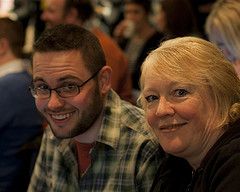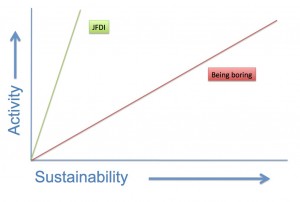I find this stuff so that you don’t have to.
- HR in the 21st Century – Collection of very interesting posts and thoughts on HR in the age of Enterprise 2.0
- Opinion Space – "The U.S. Department of State is interested in your perspectives and input on a series of important foreign policy questions. "Opinion Space" is a new discussion forum designed to engage participants from around the world."
- Nextgov – Federal technology news, best practices, and web 2.0 tools – Looks an interesting resource.
- When It Comes to Open Government, Nobody is Perfect – "The journey toward transparency, participation and openness is not one in which government should travel alone."
- 100% Open – Interesting looking new body to emerge out of NESTA – will be watching this!
- Under construction: behind the scenes of a government website (soft) launch – Great post from Neil on the soft launch of a new site for BIS – which will save money and hopefully be adaptable to any changes ahead.
- WordPress › Use Google Libraries – This looks very clever indeed.
- Forrester Blogs – Forrester's blog network has had a bit of a makeover – loads of good stuff in here.
- Top 10 Google Apps Marketplace Apps – Useful list of the better additional apps you can get from the Google Apps marketplace.
- ShiftSpace – "ShiftSpace is an open source browser plugin for collaboratively annotating, editing and shifting the web."
You can find all my bookmarks on Delicious. There is also even more stuff on my shared Google Reader page.
You can also see all the videos I think are worth watching at my video scrapbook.



